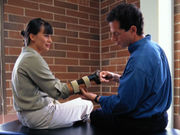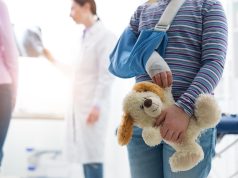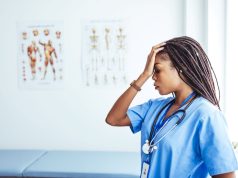With training, health care providers can recognize signs and symptoms of trafficking
TUESDAY, Aug. 9, 2016 (HealthDay News) — Injuries and illness requiring medical care present an opportunity for health care professionals to provide assistance to trafficked persons, according to an article published online Aug. 9 in the Annals of Internal Medicine.
Wendy Macias-Konstantopoulos, M.D., M.P.H., from Massachusetts General Hospital in Boston, discusses the role of medicine in mitigating the effects of human trafficking on individuals and society.
Macias-Konstantopoulos notes that victims receive care in emergency departments, primary care offices, urgent care centers, community health clinics, and reproductive health clinics, and may also be treated in hospital inpatient units. Illnesses and injuries that require medical attention represent an opportunity for receiving assistance from trusted health care professionals. Health care providers can recognize the signs and symptoms of trafficking with education and training. They can also provide trauma-informed care to this population and can respond to those who are interested and ready to receive assistance.
“Multidisciplinary response protocols, research, and policy advocacy can enhance the impact of anti-trafficking health care efforts to interrupt the cycle of abuse and violence for these victims,” Macias-Konstantopoulos writes.
Full Text (subscription or payment may be required)
Copyright © 2016 HealthDay. All rights reserved.








